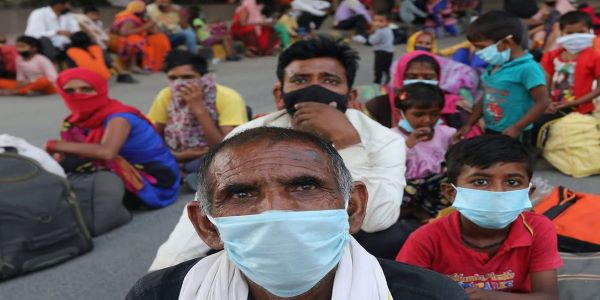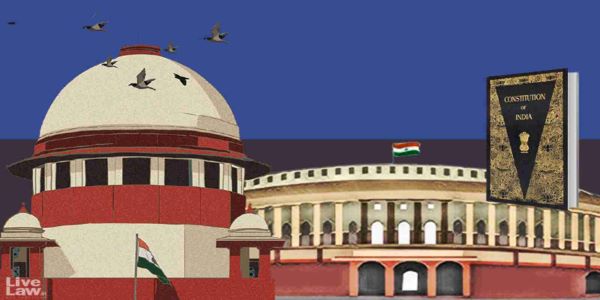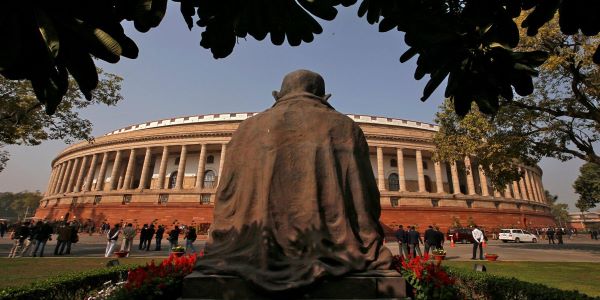Every citizen in India has some duties towards the state. To lead a safe and content social life, everyone must follow the duties. The Indian Constitution did not talk about these duties originally. The legal text talks about the rights of the citizens. These rights are negative for the state. However, they positively protect the citizens against the state. On the other hand, the duties are stated positively. If followed rightly, they make the country and world, in general, a better place to live. They ensure harmony in the state. It also promotes fraternity in the state. In today’s article, we will talk about this. We will list 11 fundamental duties of the Indian Constitution for citizens. Let us talk about the Fundamental Duties of India in detail now.
About the Fundamental Duties of India
The legal text originally talked about DPSP and rights in detail. The DPSP acts as a manual for the duties of the state. However, the framers did not feel the need to add duties of the citizens. In 1976, the text was amended. Thus, the fundamental duties of India for citizens were added. Our constitution is multi-faceted. It is inspired by various legal texts of the world. The USSR constitution inspired the Indian duties. It is imp note an imp fact about the fundamental duties. That is, none of the democratic countries have well-defined duties as a part of their legal texts. Only Japan ensured the addition of duties in their constitution. However, on the other hand, the socialist countries focused on rights and duties equally.
What Created the Need to Add Duties in the Constitution?
We are all aware of the Internal Emergency during 1975 – 1977. This created the need to add duties to the legal text of India. The congress part set up the Swaran Singh Committee in 1976. This committee made recommendations on the topic. It studied the need for Fundamental Duties of the Indian Constitution for Citizens. The committee recommended the addition of these duties. However, they must be added in a separate chapter. During this period, the govt focused on the liability of citizens towards the state. It was observed that just enjoying the fundamental rights was not enough. The country’s progress depends on the citizen’s contribution. Hence, they must try to fulfill certain duties along with rights.
The 42nd amendment added the duties to the legal text. A new part was dedicated to the list of fundamental duties of India. Currently, there are a total of 11 fundamental duties of the Indian Constitution for citizens. You can read about the duties in part IV-A of the constitution. This part has only one article. That is, article 51 A. At first, the text had 10 duties. The committee had proposed 8 duties. However, the govt decided to add 10 of them. The part accepted most of the proposals of the committee. However, the party did not approve of some of them.
The non-approved proposals are as follows:
- Penalty on refusal to observe the duties.
- No law imposing the penalty can be questioned in any court for violating rights.
- Taxpaying should also be a fundamental duty.
List of the 11 Fundamental Duties of the Indian Constitution
The party then in power, did not include these three provisions in the list. Now, let us look at the list 11 of fundamental duties of India. We will start by talking about the very first duty. The first fundamental duty asks citizens to abide by the Indian Constitution. Further, it also wants citizens to respect the ideals and institutions of our country. In addition to this, we must also respect the National Flag and the National Anthem of the country. Hence, the first duty revolves around respecting the state symbols.
The second among the fundamental duties of India is very crucial. It asks citizens to cherish and follow noble ideals. Those are the ideals that inspired the National Struggle for Freedom. Hence, the duty reminds us of the freedom fight. Moreover, it also wants citizens to keep the ideals of our struggle in mind. This will help citizens to better learn their rights and use their powers wisely.
Now, speaking of the 3rd duty among the list of 11 fundamental duties of the Indian Constitution for Citizens. This talks about upholding and protecting sovereignty. It also wants citizens to protect the unity and integrity of India. The fourth duty talks about national service and defense. It asks citizens to defend the country. Moreover, a citizen must render national service when called upon to do so. The fifth duty talks about harmony. Citizens must promote brotherhood irrespective of their language, religion, caste, etc. Moreover, this duty wants citizens to renounce practices that are derogatory to the dignity of women.
Duty Number Six to Eleven
Now let us talk about the sixth fundamental duty of the Indian constitution. It talks about the country’s culture. A citizen must value and preserve the rich heritage of our country’s culture. The 7th duty revolves around the environment. It asks citizens to protect and improve the natural environment. Like forests, lakes, rivers, and wildlife. Moreover, one must have compassion for living beings. Hence, the duties rightly include the protection of nature and other beings. It tries to create a good place for all.
The eighth duty talks about inculcating a scientific temper. Moreover, one must develop humanism. One must have a spirit of inquiry and reform. The 9th Fundamental Duty of the Indian constitution for citizens talks about property and violence. One must safeguard public property. Moreover, one must abjure violence. The 10th duty talks about personal excellence for the nation. One must progress in all spheres of individual and collective activity. This will lift the nation to rising heights. Recently, the list of fundamental duties of India saw the addition of the 11th duty. It talks about education. One must provide education to his child/ward. This is for parents of children b/w the age of 6 to 14 years. The 86th Amendment Act, 2002 added this duty.
Importance of Fundamental Duties
With this, we have covered all the duties listed in our legal text. Now, let us talk about its importance in our lives. Firstly, they remind citizens of their duties to society, citizens, and the nation. Secondly, the duties warn citizens against anti-national and anti-social activities. They promote loyalty, discipline, and commitment to the nation. The duties also help the courts to validate laws. Hence, the duties are of utmost importance. Every citizen has to follow the duties. The rights are duly enforceable in the court of law. However, the duties are not. But at times, one may face punishment for violation of duties. There are legal acts that can punish serious offenses. Thus, one must not take duties very lightly.
Criticisms
We talked about the 11 duties. We also looked at the imp functions of these duties. Now let us read some popular criticisms. Firstly, the duties are not enforceable. Also called non-justiciable. It means that you cannot question people for not following duties in the court of law. This invited critical comments. Some also call the duties a moral code of conduct. Moreover, some members of the parliament felt they are fictitious. Some felt no need to add them separately in the constitution. The assumption is that citizens will naturally follow the duties.
The second criticism is about vague context. Some duties are unclear. Hence, they are tough to interpret by the common citizens. If one does not understand the duties, it is tough to follow them. Hence the fundamental duties of the Indian Constitution for citizens must be easy to read. Moreover, everyone must easily understand the duties. The list has only 11 duties. Thus, the list is not exhaustive. There is an exclusion of imp duties like voting, paying taxes. Some critics feel it was a bad decision to attach the duties to the IVth part. This has reduced the importance of the duties. Part III itself must have contained the duties. That is with the fundamental rights. For more such articles: click here.
FAQs
The legal text has many parts. Hence, some imp provisions are added to different parts. The duties are listed under part IV A of the constitution. To read more on this: click here.
The rights are listed in part III of the constitution. They are enforceable in the court of law. That is, the violation of rights by the state can be questioned in a court of law. The duties come under part IV A. That is after DPSP. Moreover, they are not enforceable. Hence, the state cannot punish the violators of duties.
Originally, there were only 10 fundamental duties of the Indian Constitution for citizens. Now, there are a total of 11 of them. The most recent duty was added in the year 2002. It was added by the 86th constitutional amendment act. Moreover, it revolves around education.
Editor’s Note | Fundamental Duties of India
Here, we will conclude our article. In today’s article, we talked about the duties of our country. Hence, we listed the 11 fundamental duties of India. then, we talked about the non-approved duties as well. Further, we listed the importance of these duties in our daily lives. Then, we went ahead to discuss the criticisms. Thus, we tried to include all the aspects in the making of the duties. We hope that this text helps you greatly in your preparation. All the Best!











